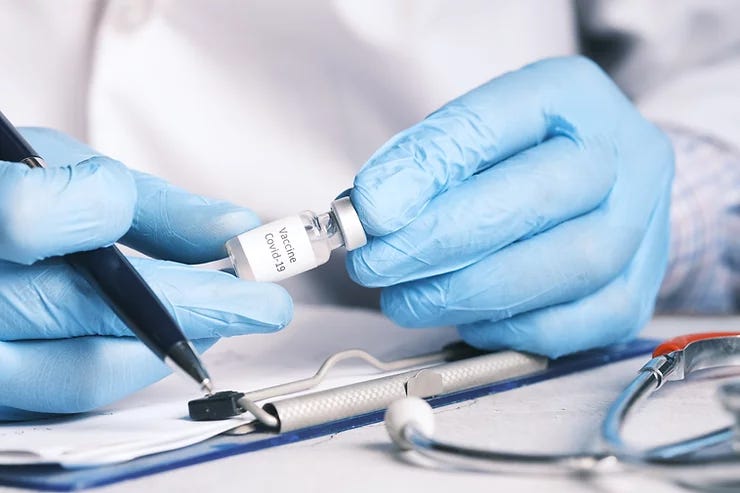Here's a List of 1000 Peer-Reviewed Studies Questioning the Safety of Covid Shots
How many of them do you think the CDC consulted before adding the shots to the childhood immunization schedule? (Also: a word about "rarity".)
1000 Peer Reviewed Studies Questioning Covid-19 Vaccine Safety
Peer Reviewed Medical Papers Submitted To Various Medical Journals, Evidencing A Multitude Of Adverse Events In Covid-19 Vaccine Recipients.
Download it. There’s a download link on the page for the entire list as a PDF.
Send it to your elected officials. Send it to your school boards.
My previous list (#49 here) (I think from Malone and a few others) had something like 158 studies.
I was way off.
This one breaks it down into the following categories:
Myocarditis: 226 studies.
Thrombosis: 150 studies.
Thrombocytopenia: 115 studies.
Cerebral Venous Thrombosis: 61 studies
Vasculitis: 43 studies.
Guillain-Barré Syndrome: 43 Studies.
Lymphademopathy: 35 studies.
Anaphylaxis: 30 studies.
Myopericarditis: 21 studies.
Allergic Reactions: 20 studies
Bell's Palsy: 18 studies
Axillary adenopathy: 18 studies
Pericarditis: 15 studies.
Etc.
I was thinking of putting together a list like this myself, but I think they’ve done a better job than I can do, and I had no idea it would be 1000 entries long.
Wow.
On “Rarity”
Many of these studies contain the word “rare”.
Ah, but see I know a thing or two about language, and how tricksy and misleading it can be, even (or maybe especially) in a scientific context.
“Rare” means the authors can distance themselves from cause-effect relationship they’re identifying.
“It’s horrible… but don’t worry! It’s rare. Ahem. Nothing to see here.”
So, let’s have it out about “rarity”, once and for all.
Let’s say your study shows that of 7800 kids receiving your shot, 10 had to be hospitalized.
Okay, that’s pretty “rare”. 1 in 780.
Now I want you to imagine a politician moving through a massive crowd of people, shaking hands and kissing babies. Let’s say, in a particularly grueling day of politicking, he shakes hands with 7800 people. Well and good.
One problem, though: after every 779th handshake or so, he pulls out a pistol and shoots the 780th person in the chest.
Then he carries right on handshaking.
Would you say, “Oh, but that’s a rare phenomenon. For the most part, he’s a safe and effective handshaker”?
Or, after the first couple attempted murders would you get the hint and stop him?
Would you actually let him get to 7800 handshakes, and count the ten new hospitalized gunshot victims as an “acceptable” loss?
And if so, what does that make you?
And what does that make you if you change the 7800 people in the example to children under 5 years of age?
If you’re one of these study authors, I’d really like to know something: does including the word “rare” allow you to keep your grant or job?
And if you’re one of these authors and you’re not hopping up and down to stop the CDC adding these shots to their childhood immunization schedule, I wonder why you did this study in the first place, and more broadly, why you entered science as a career.
Wasn’t it to, I don’t know… “help humanity”?
No time like the present.






Great analogy James.
The answer: ZERO